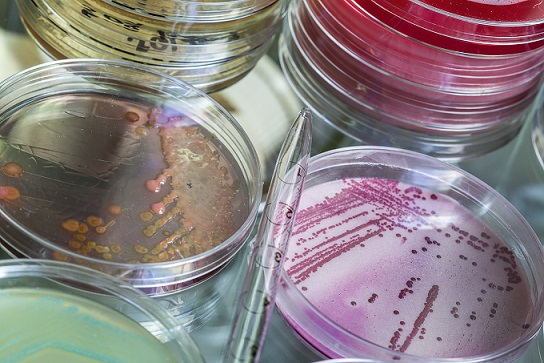Testing Categories
- Food Safety
- Pesticide Residue
- Nutritional Information
- Allergen
- Shelf Life
- Environmental
Latest News
Price Adjustment - 2025/26
Agrifood Technology have conducted a detailed market analysis, and we would like to notify our...
Services
Local Health - Hotel Testing
As the hospitality industry continues to grow and evolve, one area that remains of critical importance is food safety. Hotels are responsible for ensuring the safety and quality of the food they serve to guests, and this requires rigorous food safety testing and routine monitoring.
Hospitality & Food Safety in Hotels
Ensuring food safety is of utmost importance in hotel kitchens. The implementation of kitchen hygiene standards and adherence to food safety protocols are essential to protect the health of guests and maintain a good reputation.
GUEST SAFETY
This is the most important reason for good food hygiene in hotels. Poor food hygiene can lead to the spread of harmful bacteria and other microorganisms that can cause food poisoning and other illnesses.
"Improve Food Safety & Hygiene in the workplace"

Foodborne illness: Foodborne illnesses can have a significant impact on the reputation of a hotel and its bottom line, not to mention the health and safety of guests. Therefore, it is essential for hotels to implement comprehensive food safety programs that include regular testing and monitoring of food products.
Hotels must ensure that their food is free from harmful pathogens, contaminants, and toxins. This involves regular testing of food samples for microbiological hazards such as bacteria (e.g. Salmonella and E. coli). Testing may include microbiological analysis, chemical and allergen analysis.
Reputation and guest satisfaction: A hotel that fails to maintain good food hygiene practices risks damaging its reputation. Overall, having a food safety plan in place is crucial for protecting consumer health, meeting legal/hygiene requirements and maintaining brand reputation.
TEST SCOPE
The frequency of testing food, swabs and water is determined by an individual HACCP plans. However, it is recommended to test food and surfaces every three months if the food ingredients remain unchanged. Water testing should be conducted annually.
Recommendation microbiology tests food:
|
Test |
Food contains Fresh ingredients (un-cooked) without starchy items |
Food contains Fresh ingredients (un-cooked) with starchy items |
Cooked food contains no meat |
Cooked food contains meat |
|
Total plate count |
X |
X |
||
|
E. coli |
X |
X |
X |
X |
|
Coagulase positive staphylococcus |
X |
X |
X |
X |
|
Bacillus cereus |
X |
X |
X |
|
|
Salmonella spp |
X |
X |
X |
X |
|
Listeria spp |
X |
X |
X |
X |
|
Clostridium perfringens |
X |
Recommendation microbiology tests for swabs:
|
Test |
Food contact surfaces after cleaning and sanitising |
Non-food contact surfaces |
|
TPC |
X |
|
|
Enterobacteriaceae |
X |
|
|
Listeria |
X |
Recommendation microbiology tests for water testing (water or/and ice):
|
Test |
Water and Ice |
|
Coliforms & E. coli |
X |

LINK TO BROCHURE: Hotel Testing - Food Safety
OUR SERVICE
Agrifood Technology offer a complete service to assist hotels, restaurants and caterers in meeting its regulatory requirements, which includes picking up samples and laboratory analysis all in one. Our staff offer their analytical expertise to assist you in meeting all necessary food safety guidelines.
Victorian Council Testing
Agrifood Technology offer municipal Councils a wide range of testing services under the Victorian Food Act. 1984. We are proud to be the preferred laboratory of testing for over 39 councils across metro and rural Victoria.
We have six Authorised Analysts approved in the areas of Microbiological, Chemical, Allergen and Physical analysis of food. Authorised analysts play an important role in monitoring the safety, composition and truth in labelling of foods.
Analyses are conducted to determine compliance with the Act and the Code.
Tests may include an assessment of:
• Microbiological safety
• Chemical residue levels
• Compliance with the mandatory declaration of allergens
• Composition, including the accuracy of label statements or claims (for example, nutrition information or ingredient lists)
Microbiological - Food Safety Testing
Agrifood Technology tests the food samples provided by the councils to ensure that it is safe and suitable for consumption as per the criteria set up the Food Act 1984.
Food safety can be classified into 3 main categories:
1. Microbiologically - To ensure that there are no harmful food pathogens.
2. Food allergens - To ensure that all food allergens are declared regardless of how small the amount as people with food allergies can have a severe reaction to even the smallest trace amounts of certain allergenic foods. Common allergens include – Gluten, milk, soy, peanut, egg, lupin, sesame, tree nuts, mollusc and crustacean.
3. Chemical residues - To ensure that there are no harmful residues, pesticides or heavy metals in the food we consume.

We are confident we can provide expert advice on legislation and in particular the Food Standards code and provide Councils with timely, reliable and accurate analysis according to relevant legislations to enable Councils to fulfil their duties as regulators.
Download Forms:
Council Consumable - Request Form
Environmental Swabbing Procedure - Council Micro testing
Pool & Spa Water Testing
Pool Water testing for compliance with the Victorian Public Health and Wellbeing Regulations 2019 is another service Agrifood Technology are now offering to Victorian Councils.
The following parameters are tested:
- Heterotrophic plate count
- Escherichia coli
- Pseudomonas aeruginosa

Download Form:
Procedure for Pool & Spa water sampling
Authorised Analyst Listing
At Agrifood we have 6 authorised analysts speacilised in the fields of food safety and microbiology - see below outline.
|
Name |
Position |
Qualifications / Experience |
|
|
Doreen Fernandez |
Divisional Manager |
BSc (Biochemistry) Dip Bus Management |
Authorised Analyst (Food Act 1984) - PHYSICAL,CHEMICAL AND ALLERGEN TESTING |
|
Robert Rantino |
National Laboratory Operations Manager |
Bachelor of Food Technology |
Authorised Analyst (Food Act 1984) - CHEMICAL & PHYSICAL TESTING |
|
Somayeh Yadkhast |
Team Leader Microbiology Derrimut |
Bachelor of Food Science and Technology (Quality Control) |
Authorised Analyst (Food Act 1984) - MICROBIOLOGICAL TESTING |
| Candida Showler | National Quality & System Manager | Bachelor of Applied Science | Authorised Analyst (Food Act 1984) - CHEMICAL & PHYSICAL TESTING |
| Navdeep Ghotra | Microbiology Controller - VIC | Master of Food Science & Technology | Authorised Analyst (Food Act 1984) - MICROBIOLOGICAL TESTING |
| Diana Coelho | National Client Services Manager | Masters of Science (Biochemistry) | Authorised Analyst (Food Act 1984) - CHEMICAL TESTING |
Please do not hesitate to get in touch with us, if you need further assistance with your Councils food sampling schedule or additional testing requirements.
Microbiological Food Testing
Agrifood Technology is a NATA accredited specialised Microbiological Testing Laboratory - offering complete microbiological services in Food & Feed safety testing.
"Complete Microbiological services in Food & Feed safety testing"
All testing services carried out adhere to stringent accreditation and quality assurance requirements (NATA). Microbiological testing is an important component of any food safety program and as such, timely testing and service is imperative.
Agrifood Technology provides a wide range of microbiological services to assist with your product release requirements, as well as ensuring the safety and hygiene of your production processes and environmental safety systems through environmental and surface swab testing.

Key Tests:
Coliforms
E.coli
Listeria
Salmonella
Yeast and Mould
Coagulase positive Staphylococcus
Standard Plate Count
Bacillus cereus
Clostridium perfringens
Enterobacteriaceae
Lactic acid bacteria
Download Information & Forms:
Water Testing at Agrifood DML - Client information
Microbiology Water Sample Submission form
Water sample collection instructions for Microbilogical testing
Link to full NATA accreditation:
VIC: NATA link
WA: NATA link
QLD: NATA link
Food matrices covered include:
- Cereal products
- Nuts and nut products
- Dairy products
- Meat and meat products
- Poultry and poultry products
- Fish, crustaceans and molluscs
- Sugar products, honey and confectionery
- Vegetables and vegetable products
- Fruit and fruit products
- Beverages
- Animal feeds
- Mixed Foods
- Herbs and spices
- Pet foods
- Finished products
Test
test







